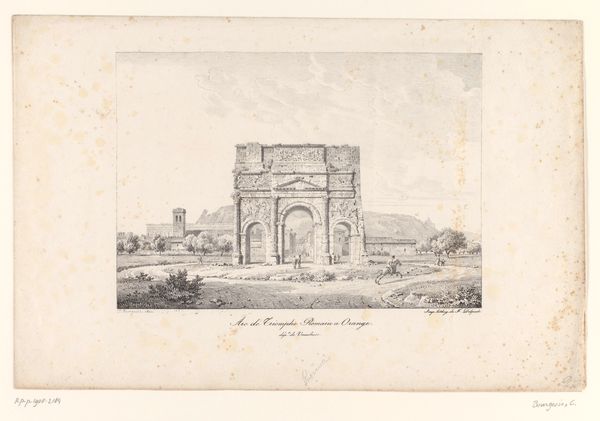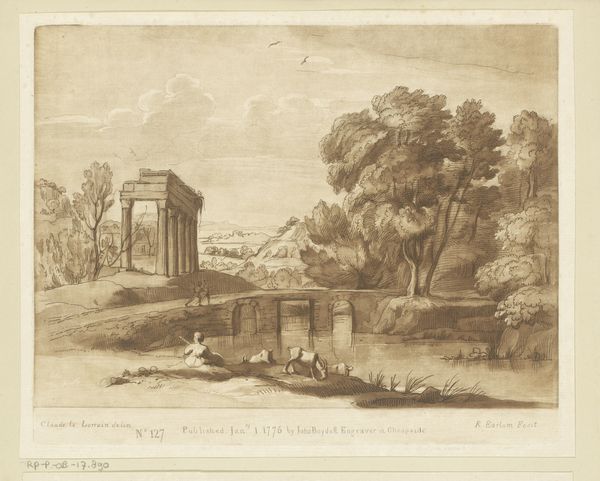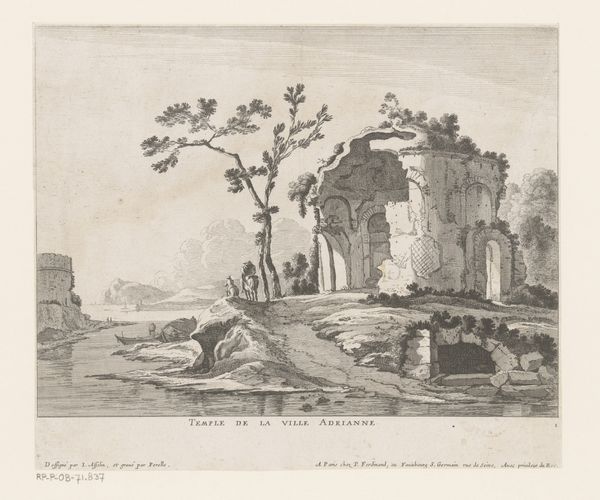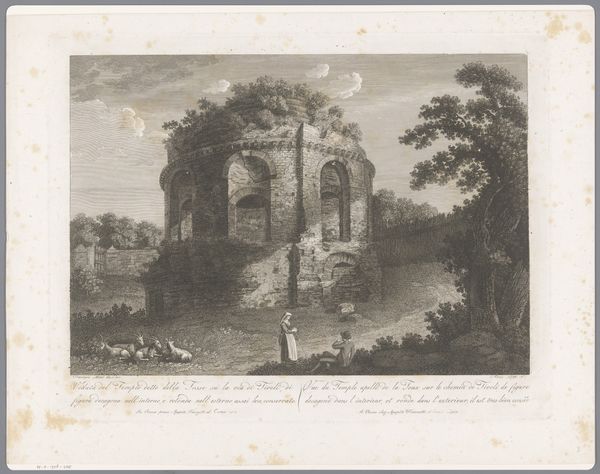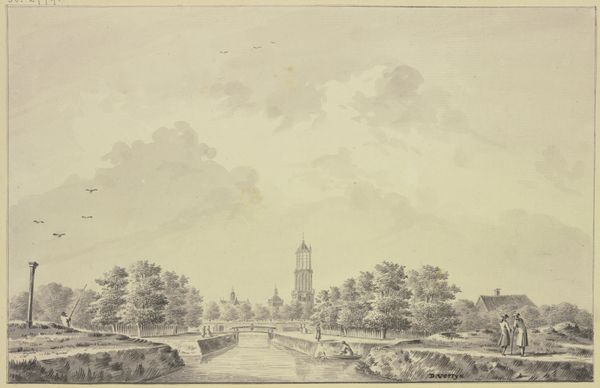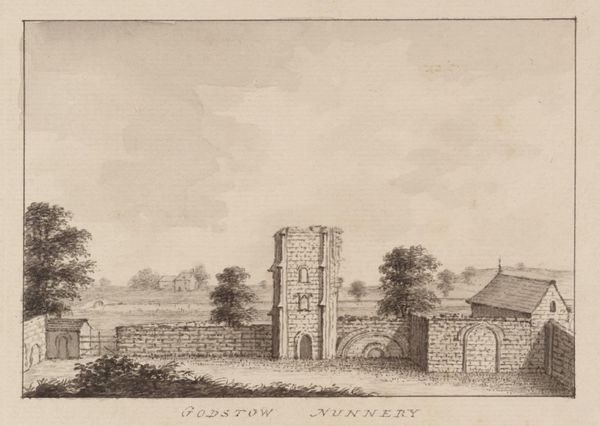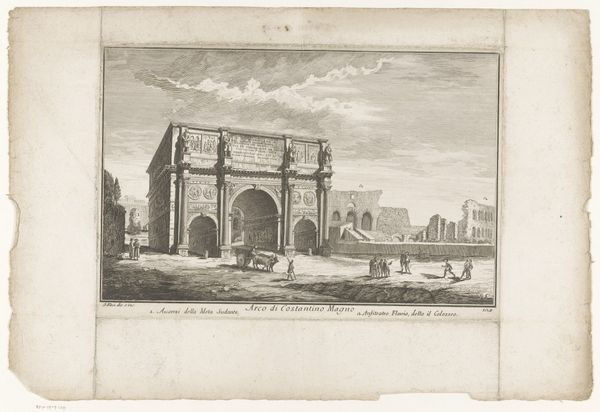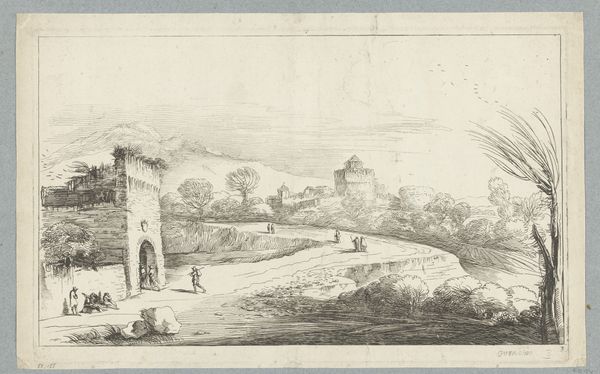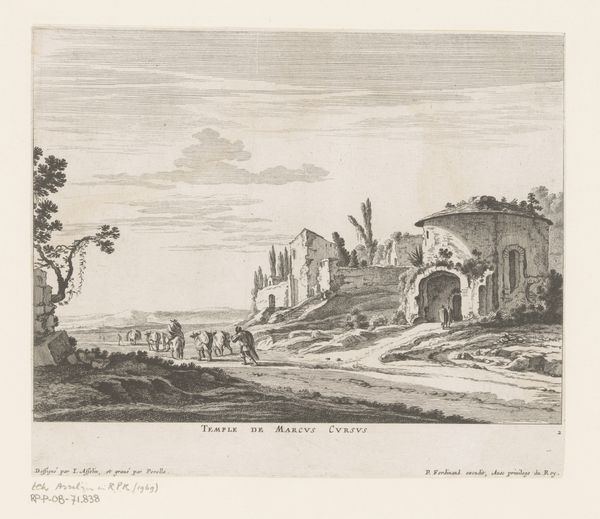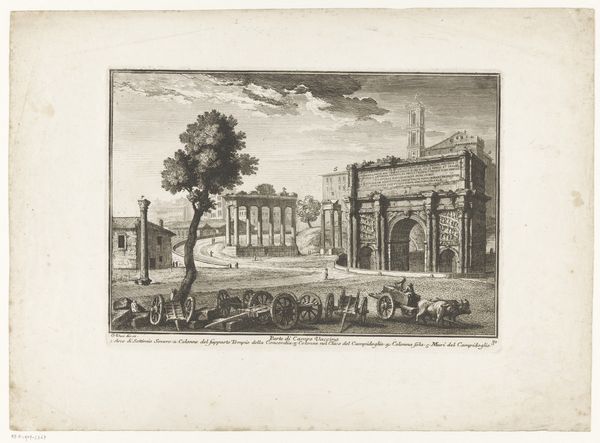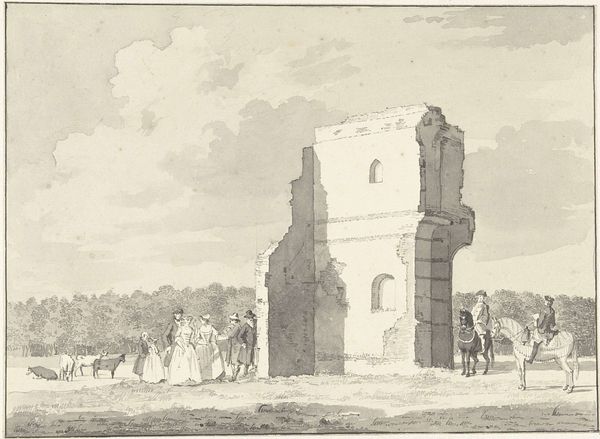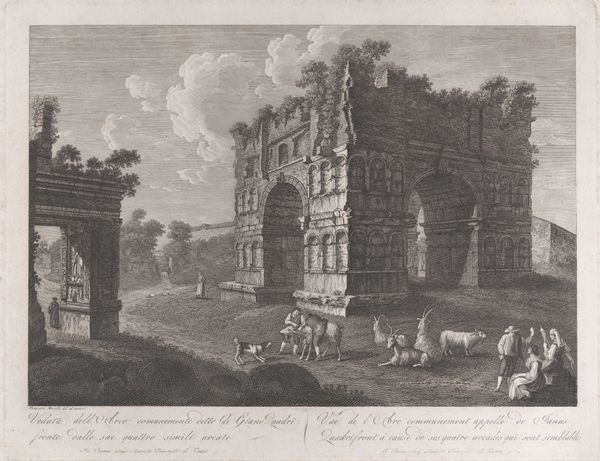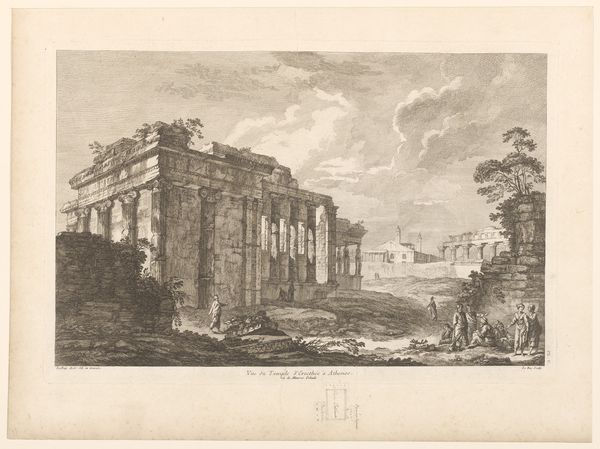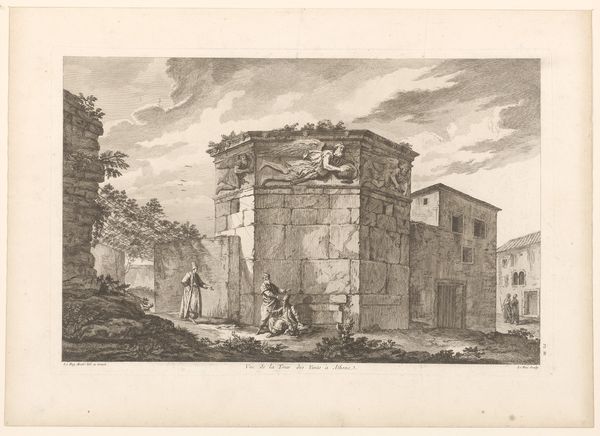
print, engraving, architecture
#
neoclacissism
# print
#
landscape
#
classical-realism
#
form
#
line
#
cityscape
#
engraving
#
architecture
#
realism
Dimensions: height 450 mm, width 586 mm
Copyright: Rijks Museum: Open Domain
Benedikt Piringer made this print of the Triumphal Arch of Orange at the beginning of the 19th century. The image presents us with an intriguing question about the public role of art. Prints like these were made for a growing tourist market in Europe. The Triumphal Arch itself, located in the south of France, was built during the reign of Augustus in the 1st century CE. In Piringer's time, the Arch would have been understood as a testament to the power of the Roman empire and the ideals of Neoclassicism. But the image doesn't just present the grandeur of the past. It also subtly incorporates elements of contemporary social life through the figures in the landscape. How does the inclusion of these figures alter our understanding of the Arch and its significance? The answer to this question may lie in archival research and the study of tourism and print culture in 19th-century Europe.
Comments
No comments
Be the first to comment and join the conversation on the ultimate creative platform.
